8 Reasons Why You’re Eating Healthy But Not Losing Weight
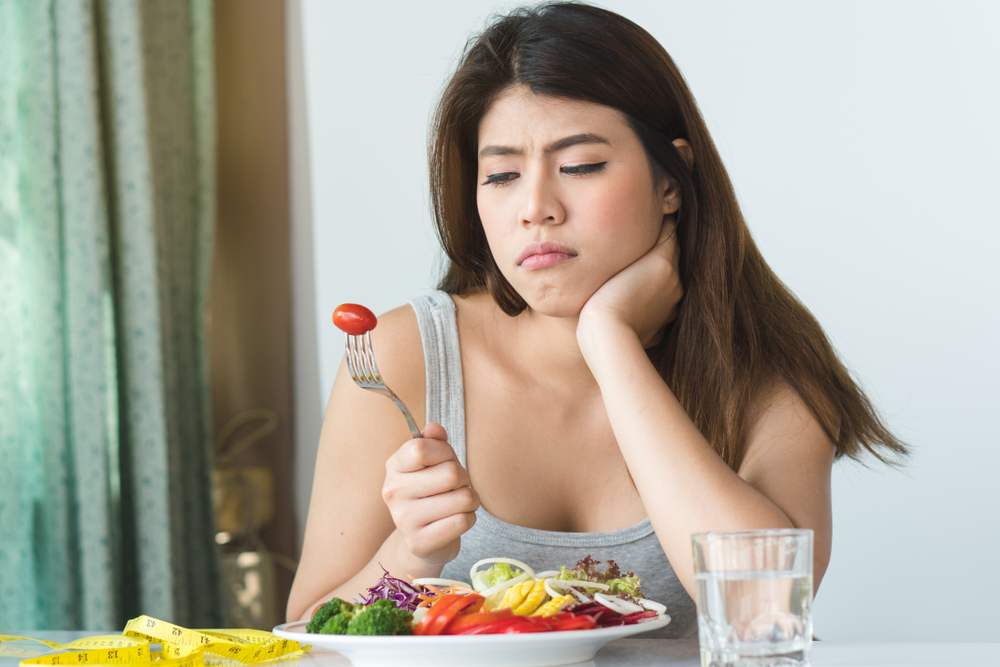
Have you been working out and eating healthy but not losing weight?
Here’s some weight loss truth for you, and this may surprise you, but…
You don’t just automatically lose weight by eating “healthy.”
I know, I know.
You’ve been conditioned to believe that “clean” foods equal weight loss.
And this isn’t me telling you healthy foods are bad.
I mean, yeah, the majority of your calories (roughly 80%) should come from those “healthy,” nutrient-dense whole foods you probably think of:
- Chicken breast
- Sweet potatoes
- Fruits (super great food for weight loss, despite their “natural sugars”)
- Veggies, etc
But if you’ve been struggling to lose weight despite eating all healthy and clean, then you’re overlooking the number one, overarching rule of weight loss.
In order to lose weight, you have to be in what’s called a “calorie deficit.”
It’s the whole calories in vs. calories out thing.
If you take in fewer calories than your body needs then you’ll lose weight.
It’s not the specific types of foods (i.e. healthy or clean) but HOW MUCH of them you’re eating that determines weight loss.
Because, at the end of the day, you can eat as healthy or as clean as you want but consuming too many means you won’t lose weight.
There’s a lot of nuance to being in a calorie deficit, considering the different factors that go into
There are many different factors that go into helping you create a deficit, so what specifically are you doing wrong that’s preventing you from being one?
The 8 reasons I have for you below will shed some light on why you’re working out and eating healthy but not losing weight.
Why am I not losing weight?
1. You’re eating more calories than you should be
You can eat clean to lose weight but as I just mentioned, overall calories dictate weight loss.
So, you’re either:
- Consuming too much of those foods you consider healthy.
Or…
- The “clean” foods you’re eating contain a lot more calories than you realize.
For example, many people consider a food like peanut butter to be healthy because it contains protein.
The truth is, it’s really not that great of a protein source at all and it’s super high in calories.
Or, take olive oil.
Yeah, you might consider it healthy because it’s good for your heart and whatnot but if you’re just dousing your pans with it every time you cook, you’re adding hundreds of extra calories to your meals.
Want to know what you can do to make sure you’re eating the correct amount of food for weight loss?
It’s like having a budget to save money but for your food.
Calorie counting takes the guesswork out of your nutrition and teaches you about portion sizes, how to eat more balanced, and what’s actually in the foods you eat.
2. Your weekends are undoing all your progress
Tell me if this is you…
You eat clean to lose weight Monday-Friday.
Then, the weekend hits and it’s time to let LOOSE.
You deserve it after being on point with your workouts and nutrition for the past 5 days, right?
I’m all for having fun but keep in mind you’re not in Vegas.
What happens on the weekend doesn’t stay on the weekend 😂
Calories count Saturday and Sunday too, even if you try to pretend like they don’t.
If you’re just taking weekends off, that could easily explain how you’re eating healthy but not losing weight.
Look, I get it.
You work so hard during the week and just want to have a little bit of fun on the weekends.
You go into it planning to reward yourself with just one cheat meal.
Or go out to eat and grab drinks with some friends.
But it always ends up snowballing into a weekend-long bender that ends with you slumped over on the couch, surrounded by a bunch of pizza boxes and chip bags, with Netflix on in the background.
I have two simple solutions to your dilemma:
- Be less restrictive during the week so you don’t feel a need to go all crazy and binge on the weekends
- Use calorie cycling to have more flexibility on the weekends for things you want to do, like go out to eat, grab drinks with friends, etc
3. You make a beeline for the cardio machines every workout
I realize this one doesn’t have to do with clean eating per se.
But it still lives in that “working out and eating healthy but not losing weight” space.
Let’s talk about exercise…
When you get to the gym, do you avoid the free weight section like the plague and always head straight to the cardio equipment?
Your goal is to sweat a lot during your workouts and burn a ton of calories.
You even heard fasted cardio leads to greater fat loss so you’re thinking about giving that a try.
Don’t take what I’m about to say and spin it as “Well, Chad thinks cardio is bad.”
I’m not saying that at all.
Cardio is great for your health, there’s really no debating that.
Actually, in my humble opinion, simply walking is the best cardio for fat loss (even better than HIIT).
But what I will say about cardio is there’s one major drawback…
You can’t build muscle by doing cardio.
You can only do that by strength training.
That doesn’t mean Orange Theory classes, fitness boot camps, or lifting “lighter weight for reps” to tone your muscles.
By strength training, we’re talking about actually getting in the gym, lifting heavy weights, and progressively getting stronger over time.
Why is having muscle so important?
Well…
The more muscle you have, the higher your metabolism and the more fat you’ll lose.
Muscle also gives your physique that leaner, more defined look (which means you’ll avoid the “skinny fat” look that often comes with focusing on cardio alone).
4. Your protein intake is too low
If you’re not eating somewhere between 0.7g-1g per pound of your goal body weight in protein daily, you’re making fat loss a lot more difficult than it needs to be.
Eating protein:
- Keeps you fuller for longer: It’s the most satiating macronutrient
- Boosts your metabolism: The thermic effect of food (your body burns calories through the digestion process ) is highest when you eat protein
- Is key to building lean muscle mass: More muscle means you’ll have a higher metabolic rate and burn more calories at rest
Make sure high-protein foods like chicken breast, turkey breast, egg whites, and shrimp are at the top of your weight loss grocery list for your next trip to the store.
5. You’re ignoring liquid calories
You say you practice clean eating for weight loss, huh?
But let me ask you this…
Does that include tracking liquid calories like soda, tea, coffee, or alcohol?
Beverages contain calories that need to be accounted for.
So let’s say you’re eating healthy but not losing weight and can’t figure out for the life of you why.
Take a look at that Mountain Dew you pack with your lunch every day.
A single 12-ounce can has 170 calories, and assuming you take one to work with you Monday-Friday (five days per week), that adds up to roughly 44,000 calories a year.
Or, about 13 pounds of potential weight gain 😲
See what I’m saying?
I don’t tell you that to scare you, and this definitely isn’t me saying never to have your favorite soda or high-calorie beverage again.
I just want you to be aware of the impact liquid calories can have on weight loss.
This is just my two cents but I’d suggest opting for water most of the time, or a 0-calorie or diet beverage.
And no, the artificial sweeteners won’t prevent you from losing fat, give you cancer, or anything like that you may have heard..
6. Fiber is nonexistent in your diet
We’re all aware fiber helps prevent constipation.
That’s just surface-level crap though (pun intended 😂).
Fiber is similar to protein (keeps you full and your calorie intake down), so if you’re eating healthy but not losing weight, a lack of fiber in your diet might be why.
Weight loss aside, fiber has a ton of other amazing health benefits.
For example, you lower your risk of heart disease by 9% for every 7 grams of fiber you eat.
And you lower your all-cause mortality risk (the likelihood of dying from pretty much anything) by 19% when you consistently eat enough fiber.
Fellas, aim for 35 grams. of fiber per day.
Ladies, shoot for at least 25 grams.
Foods rich in fiber:
- Berries (raspberries, blackberries, blueberries)
- Whole grains
- Oats/oatmeal
- Beans and lentils
- Avocado
- Almonds
- Pistachios
- Walnuts
- Chia seeds
- Sunflower seeds
- Pumpkin seeds
- Popcorn (low fat)
- Leafy greens
- Chickpeas
- Split peas
- Pears
- Artichoke
- Brussels sprouts
- Apples
7. You eat back calories you burn from exercise
Don’t log any exercise calories in your smartwatch or apps like MyFitnessPal.
Trust me on this, you’re consuming way more calories than you should be when you eat back exercise calories.
8. You don’t eat any of your favorite foods
I’ve made more weight loss mistakes than I can count.
Do you have all day?
Because that’s how long it would take for me to list them all out 😅
Seriously though, one of the biggest ones was me thinking that losing fat and getting in shape meant bland, boring, strictly “healthy” meals.
It meant deprivation and extreme sacrifice, at least that’s what I told myself.
And it made me feel absolutely miserable.
No more Grippos Barbecue Potato Chips or Little Debbie Honey Burns (two of my favorites).
In my head, there was just no way I could still enjoy the foods and still lose weight.
If you’re feeling the same way I did, I’m here to tell you that way of thinking couldn’t be further from reality.
I’m sure you’ve found out by now that, when you overly restrict yourself, it comes back to bite you later on.
Eventually, you just can’t take it anymore so you give into temptation and binge out on all your favorite foods you cut out of your diet.
You teeter back and forth like a yo-yo between losing some weight and gaining it all back.
So, while your goal might be to eat clean to lose weight, if you can’t have fun with your diet you won’t be able to maintain it for long.
And when you can’t maintain your way of eating, any results you achieve will only be temporary.
If you’re tired of eating healthy but not losing weight, there’s another way…
Research shows people who practice flexible eating lose more weight than those who eat crazy strict.
So try this:
Instead of operating like “I have to eat clean to lose weight” start enjoying some of your favorite foods (in moderation) within your diet.
How do you know what “moderation” is?
A good rule to follow is the 80/20 Rule.
You’re going to get 80% of your calories from nutrient-dense, whole foods like:
- Chicken breast
- Eggs/egg whites
- Sweet potatoes
- Fruits
- Veggies, etc.
And then 20% of your calories from those “fun” foods you like:
- Pizza
- Burgers
- Wings
- Fries
- Cookies
- Donuts, etc
Eating healthy but not losing weight FAQs
What are some foods not to eat to lose weight?
Having a weight loss mindset means realizing there is no such thing as “good” or “bad” foods.
The truth of the matter is no food has to be “off limits.”
As we talked about, you can fit foods like pizza, fries, cookies, and cake into your diet and still lose weight.
Why am I not losing weight in a calorie deficit?
You might THINK you’re in a calorie deficit.
But if that were actually the case, either:
- You’d see weight loss
And/or…
- Your measurements would be decreasing
So if you’re not losing weight or seeing your measurements going down, there’s something preventing you from being in a calorie deficit.
Why am I not losing weight with intermittent fasting?
Intermittent fasting isn’t some magic hack or strategy that’ll just automatically lead to weight loss.
You still have to be in a calorie deficit (consume fewer calories than you burn) in order to lose weight.
If you’re intermittent fasting and eating healthy but not losing weight, that just means you’re not actually in a calorie deficit.
Why am I seeing no weight loss after three weeks of exercise?
If you’re just focused on the exercise piece, that’s where you’re slipping up.
Don’t get me wrong, exercise plays a role but the main driver of weight loss is nutrition.
Even if Arnold Schwarzenegger himself (or **insert your fitness idol here**) came up with a custom workout plan for you, it still wouldn’t be able to make up for a poor diet.
Why am I not losing weight on 1,200 calories?
I don’t know why but 1,200 calories seem to be the “magical” number people think they should eat for weight loss (especially among women).
But if you really think about it, how much sense does it make to take one arbitrary number and try to apply it to everyone?
Your calorie needs will be different from your neighbor/coworker/sibling/spouse, etc.
With that said, if you’re eating 1,200 calories but not losing weight, that’s because you’re eating more than the 1,200 calories you think you are.
There’s just no other way around it.
1,200 calories isn’t even enough for some toddlers so if you, as a full-grown adult, were only eating 1,200 calories you would for sure lose weight.

What's up?
I’m Chad, I’m happy you’re here! I’m a certified personal trainer and my goal is to help you form practical, sustainable habits that lead to lifelong fitness results. If you want to lose fat, build muscle, and live a healthier, happier life then you’re right where you need to be. 💪🏾
Free resources
⬇⬇⬇


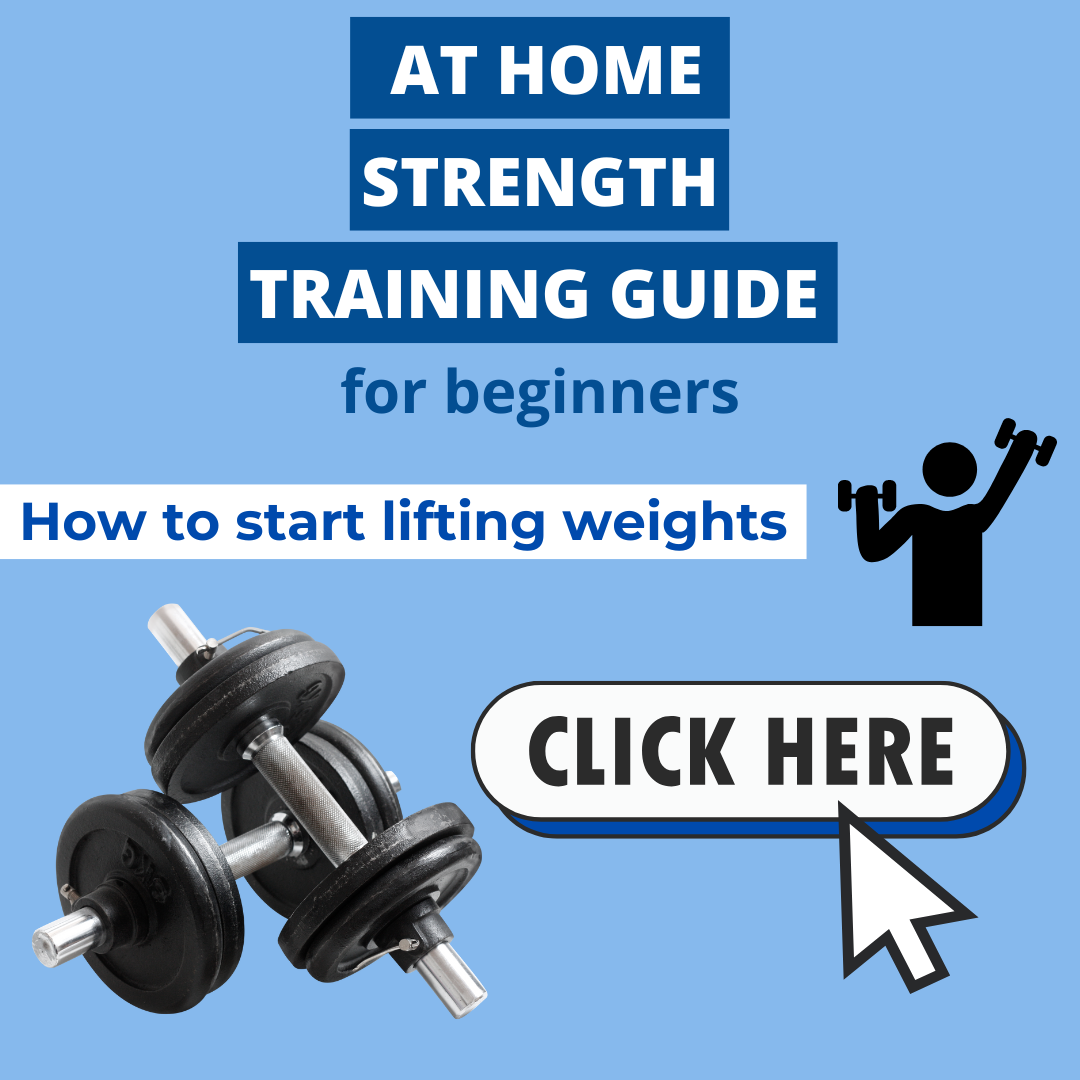
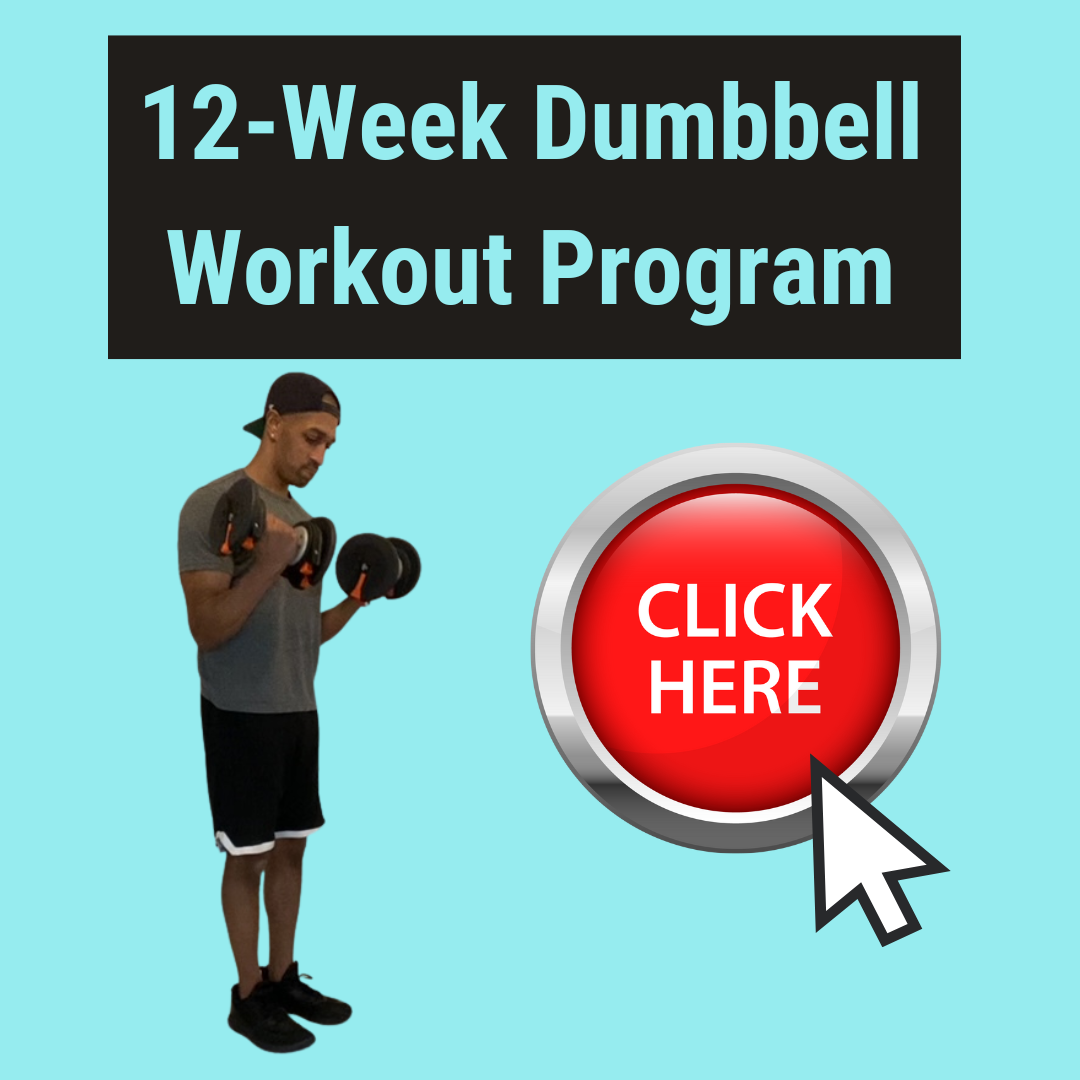
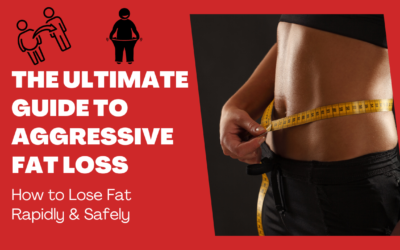
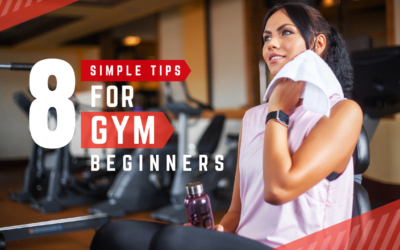
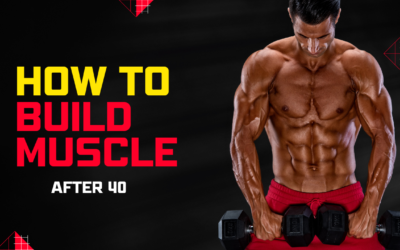
0 Comments